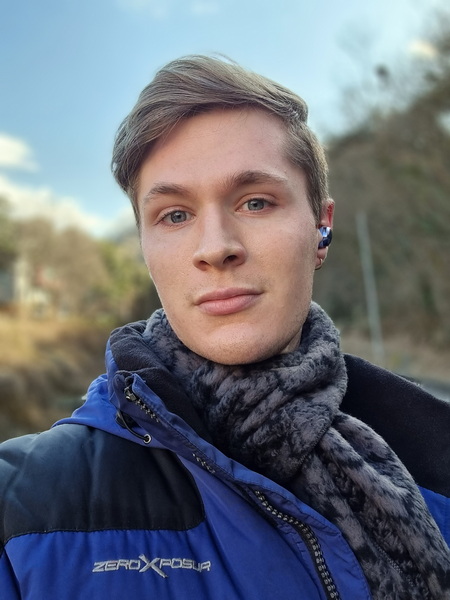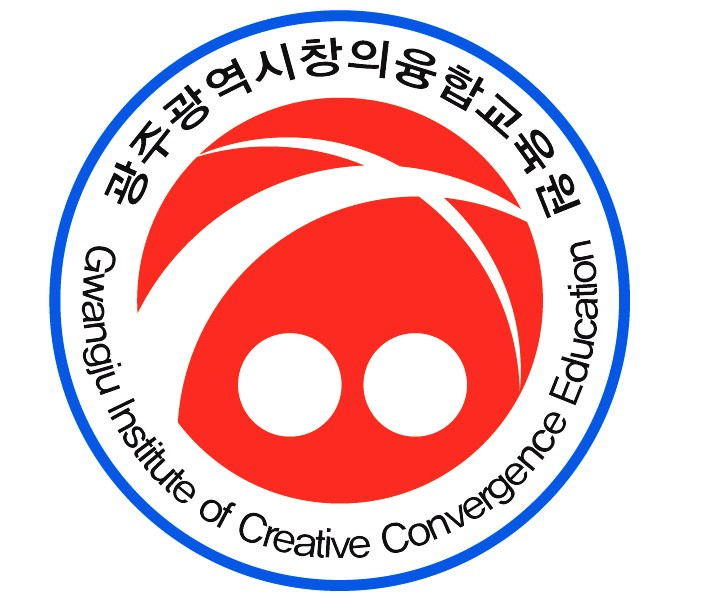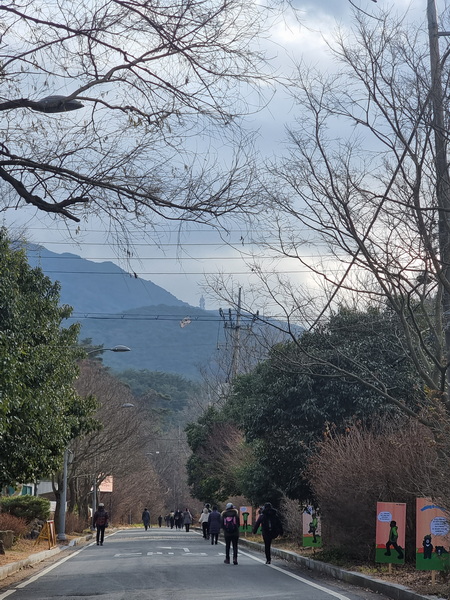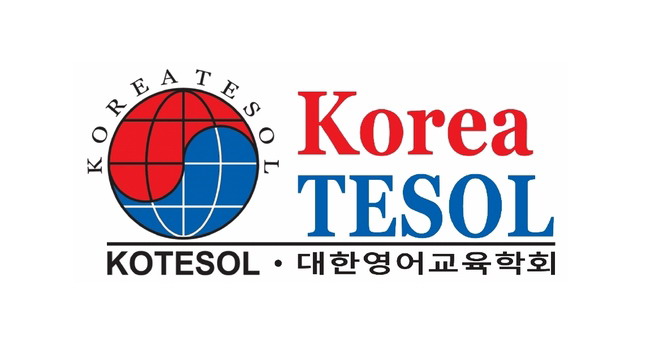The Guest English Teachers’ Program
Interview with Program Manager Jonathan Moffett
Native English-speaking teachers in Korea are not something new. They made an early splash in Korea when the government invited the U.S. Peace Corps to supply them to public schools and universities (1966–1980). After outside assistance was no longer necessary, Korea developed its own program of placing expat English teachers in its public schools – commonly referred to as “EPIK” (English Program in Korea). Now we hear of “Gwangju Guest English Teachers,” and to understand the program better, we have interviewed the program manager, Jonathan Moffett.
Interviewer: Thank you for making time for this interview, Jonathan. In this interview, I would like to delve into the Gwangju Guest English Teachers’ (GET) Program and your relation to it. But first of all, could you tell us a little about your life before coming to Korea?

Jonathan: No problem at all. Well, I came to Korea basically immediately after I graduated from university in the United States, my home country. I originally studied psychology, and after a year abroad, teaching here and traveling, I was planning on going to graduate school in psychology in the US, but I ended up changing directions completely and decided to pursue a career in education as a result of the positive experiences I had had with education in Korea. I am originally from a small town in the United States named after a specific breed of cattle: Hereford.
Interviewer: So, what motivated you to come to Korea rather than to the many other destinations there are for teaching and travel? Did you originally come in the EPIK program?
Jonathan: Well, I will answer the second part of the question first. I did indeed originally come through EPIK – I applied directly. What motivated me to do so, and how I knew about the EPIK program itself, was a little more fortuitous. In a nutshell, I found out that I needed to take two full semesters of a foreign language as a requirement to graduate my university. I had assumed my three years of Spanish and one year of Latin from high school were enough to fulfill the requirement, but apparently there were some recent policy changes. I did not find out about the change in graduation requirements until the only possible language classes remaining open for registration were Korean 101 and Intermediate German. Speaking no German, I went with Korean. Through this course, I ended up meeting a lot of Korean exchange students and became close to quite a few. My Korean professor, Dr. Grace Howard, was also super great, and I had an awesome relationship with her. Dr. Grace was very supportive and ultimately let me know about the opportunity to apply to EPIK, and more or less strongly nudged me to do so. Without her help, I never would have ended up here.
Interviewer: So, you originally did come through the EPIK program. I am somewhat confused with the terminology related to your program. There is “Gwangju EPIK,” but I also see “GET Program” and “GICCE.” How do they differ, or do they differ?
Jonathan: This is quite a confusing point for virtually everyone. To put it simply, EPIK (English Program in Korea) essentially now functions almost exclusively as a recruiter for Korea’s National Institute of International Education (NIIED), the real “power” behind the scenes. NIIED is responsible for accepting or denying applicants that EPIK delivers to them. EPIK used to be more expansive and responsible for more back in the day, but its role has been gradually decreased to it now basically being just a government-based recruiter. It is kind of strange because so many people use a recruiter to get accepted to EPIK, which is essentially a recruiter itself.

The bit about GICCE is also confusing, but I hope less so once I explain it. “GICCE” stands for “Gwangju Institute of Creative Convergence Education,” which is a division of the Gwangju Metropolitan Office of Education (GMOE). Just a few years ago, almost every Gwangju public school teacher was employed directly by the GMOE, but now due to department changes and shuffling, the GICCE is technically our employer, though the GICCE itself is just a division of the GMOE.
Interviewer: All right. That makes the letters in the alphabet soup a bit clearer: GET rather than EPIK. What are the main goals of the GET Program?
Jonathan: I have never actually been told of any “main goals” of the program. However, many of our teachers are most assuredly making a positive impact on the lives of many students, and I am very thankful to have had the opportunity to work in the program for so long.
Interviewer: I believe co-teaching or team-teaching is emphasized for GETs? How well is that being actualized?
Jonathan: Aha! I love talking about this. I actually did a research study on team-teaching here in South Korea, so I feel pretty well equipped to answer this question. To be frank, the extent to which team-teaching or co-teaching (whatever you want to call it) is utilized effectively really depends on each individual team-teaching pair’s synergy, relationship, and expectations. I have worked with over 40 co-teachers directly, and each team-teaching relationship was more different than similar. There is actually a manual that is released each year for all Korean teachers who work with a native English teacher (NET) that gives pretty vague tips about what they should be doing as far as co-teaching is concerned – things such as “teach well together,” and “teach in a way that balances one another’s strengths and weaknesses.” The problem with this is that it can be interpreted in any number of ways by different teachers who may have different perspectives. The general impression that new EPIK teachers get during orientation tends to be of this team-teaching utopia in which the Korean English teacher implements highly adaptive and responsive pedagogy that perfectly complements that of the NET, but this almost never actually happens.
There is often a lack of time to co-plan lessons together and engage in feedback about each lesson in such a way that each teacher involved is really bringing their best to the table – not to mention that the starting expectations about what even constitutes “team-teaching” or “co-teaching” is almost always different. Discussing what constitutes good team-teaching is even more befuddling. I guess the gist of what I am trying to say is that there is no perfect recipe or formula that is being actively endorsed for our teachers here, besides EPIK’s “magical paradise” model of team-teaching that NETs get fed upon arrival. That said, I do what I can to help the new teachers have appropriate expectations once I meet them and have some time to talk. I think the key to successful team-teaching is really just open communication and flexibility. Sometimes it is beneficial for the students, and sometimes not, depending on what the students’ specific educational goals are. For example, in middle schools especially, test culture can sometimes minimize the limelight that co-teaching should really get to be more impactful for the students.
Interviewer: What aspects do GETs like most about the program? And what are the biggest challenges for them – in or outside of teaching in Korea?
Jonathan: Wow. This is a great question, but I am going to stick to a very dull answer: “It depends.” If I must give an answer regarding what teachers like most about the program, I think something that I appreciated a lot myself when I was teaching was having a GET program manager available whose main purpose was essentially just to help GETs – not to mention the very generous vacation package (26 days), sick days (11 days), and very competitive salaries. The biggest challenge would probably be the fact that almost all of our teachers are the only NET at their workplace, which can often feel very isolating, granting that the forced cultural immersion might have other positives.
Interviewer: You have spent the past year in a new position – that of GET program manager. What exactly is your role, or roles, as program manager?
Jonathan: Well, this is a bit harder to answer. I honestly do a lot of things. My main function is essentially to coordinate and communicate matters between the GICCE and the NETs. I have met other coordinators from different provinces who actually teach full-time in addition to being a coordinator or program manager, but I think they actually do far less than I do as far as administrative matters are concerned. As the Gwangju program manager, I do everything from helping set up bank accounts for our new teachers and helping get ARCs [alien registration cards] issued at the immigration office to organizing training sessions and workshops, coordinating special events, intervening and giving counsel if disputes arise, assisting with creating and sending out paychecks, creating and providing official documents, translating official documents written in Korean, assisting with housing matters, answering the constant emails and phone queries, and substitute teaching at the Online Center and English Experience Center. I could really go on. I do a little bit of everything. Literally anything that concerns our NETs I am involved with on some level. This is actually the reason why I think being in a program like ours with a full-time GET program manager is so beneficial. The teachers are never really alone.
Interviewer: How big is Gwangju’s GET program, and has it been affected by the COVID-19 pandemic?
Jonathan: Currently, we have 82 teachers – though we used to be much bigger. Surprisingly, the pandemic has done little to affect our numbers because, if anything, it has made our retention rates much higher. Now, that is just numbers! The actual experience of being a teacher during the pandemic has certainly been variable for everyone. I do not know who has not been at least somewhat affected by the pandemic. What I am thankful for, though, is that we have pretty great job security during the course of our contracts. I was never worried about losing my job during the contract period while teaching.
Interviewer: How difficult was it for GET program teachers to suddenly adjust to teaching in a pandemic?
Jonathan: When the pandemic first began, I was still teaching, so I can answer this from a personal perspective. I think it was really difficult for a couple of reasons. The first, is that as NETs we are mostly responsible for teaching listening and speaking through communicative means. As such, adapting our materials and lesson delivery to be amenable to the online format was quite a challenge. Something like reading or writing would have been much simpler to adjust to the online format. Another factor that played into this was that we do not really assign homework as NETs or have access to grading our students on a consistent level, so there was no way we could really give assignments to our students and ensure that they did them. I know I spent hours and hours on each single 45-minute online lesson, and many of my students never even bothered to watch it because there was no motivation to do so.
Interviewer: What do you do in your spare time, if spare time is something that you actually have?

Jonathan: Not yet a family man, I certainly have some spare time once I clock out for the day. Usually, I do some light exercise in my home, go for walks, eat delicious food, watch Netflix or YouTube, play some video games, read books, practice Korean, or go hiking. I actually live really close to Mudeung Mountain, which is something I am thankful for almost every day. Hiking in Korea is really a blessing. I think the availability of it is just wonderful. At home in the US, I would have to drive quite a way to get an actual hiking experience.
Interviewer: Though I have been here in Korea since before EPIK was established, I have learned a lot about it – and about you – through this interview. Thank you, Jonathan!
Interviewed by David Shaffer.
Photograph and graphics courtesy of Jonathan Moffett.
The Interviewer
David Shaffer has been involved in TEFL and teacher training in Gwangju for many years. As vice-president of the Gwangju-Jeonnam Chapter of KOTESOL, he invites you to participate in the chapter’s teacher development workshops (now online) and in KOTESOL activities in general. He is a past president of KOTESOL and is currently the editor-in-chief of the Gwangju News.
Gwangju-Jeonnam KOTESOL UPCOMING EVENTS
Check the Chapter’s webpages and Facebook group periodically for updates on chapter events and other online KOTESOL activities.
For full event details:
Website: http://koreatesol.org/gwangju
Facebook: Gwangju-Jeonnam KOTESOL



